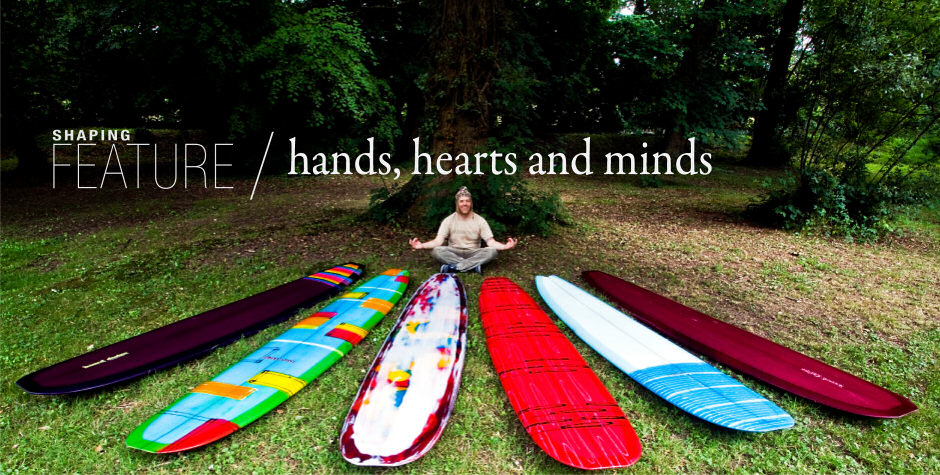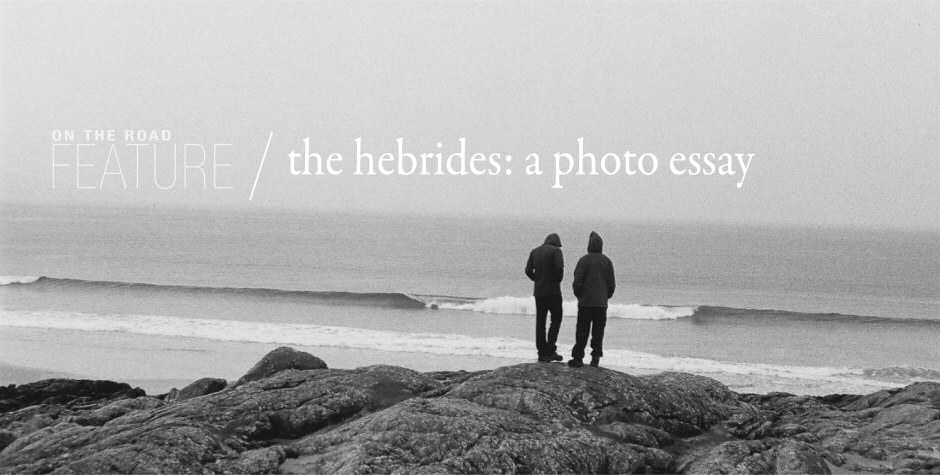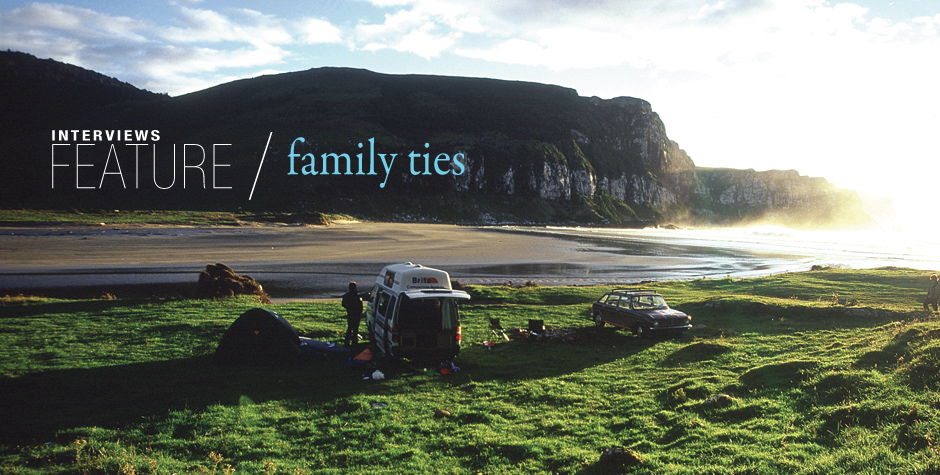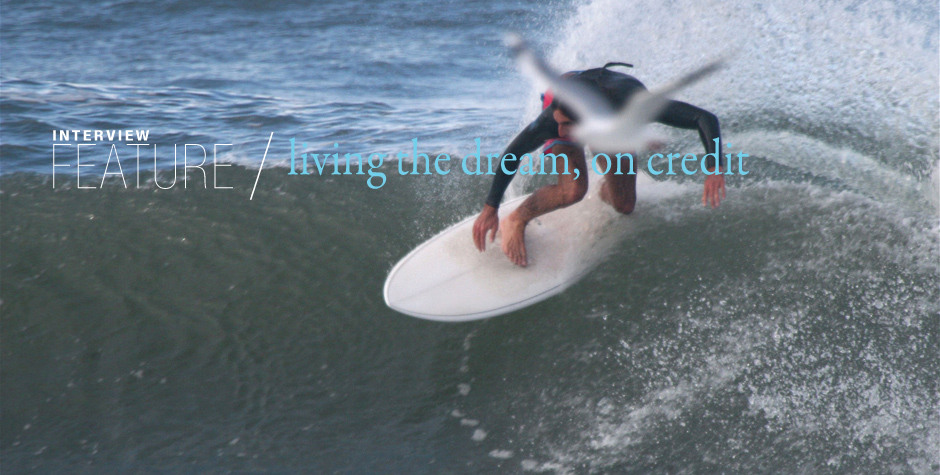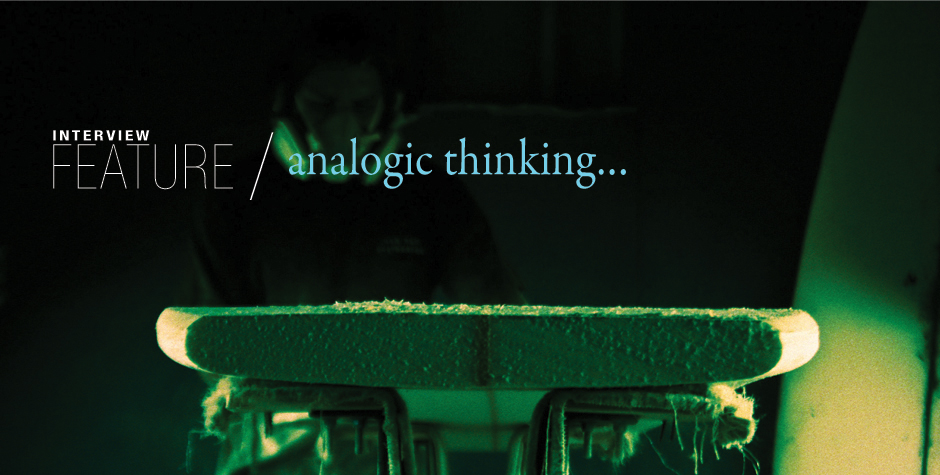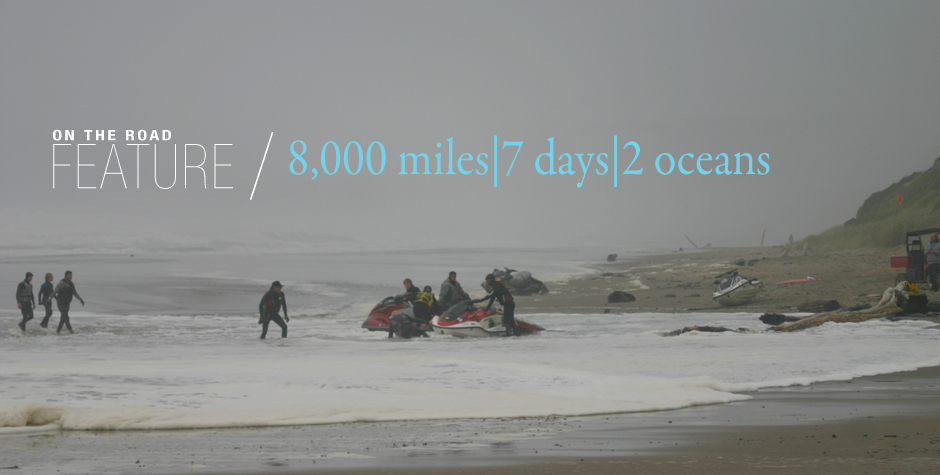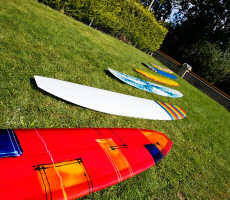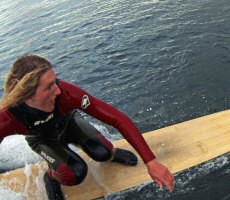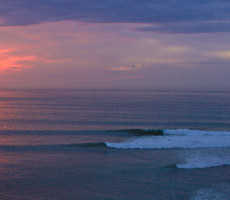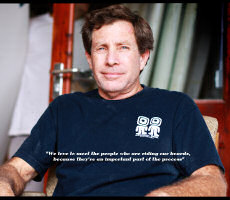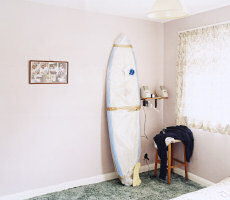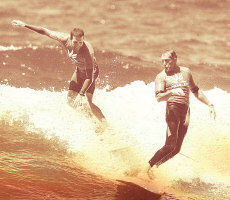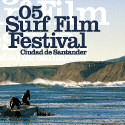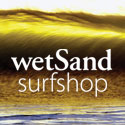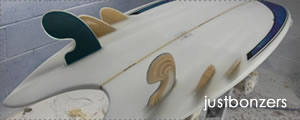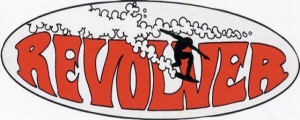Meet Mr B

Mr B, whose fourth film, ’21 Days Later’, is out this month on DVD, chats to Christiaan Bailey about his work, trying to extract money from the surf industry, and the British surf film scene…
Christiaan Bailey: So, who the hell are you and why should people be interested in your work?
Mr B: I’m Mr B, I previously shot, edited, and produced ‘Performing Monkeys’, ‘Driven’, and ‘Substance’. All my films have been based around Britain and Ireland and have all focused on British and Irish surfers. They all in some way try to show the best surf and surfing that the British Isles have to offer, so if you enjoy watching our surfers going big in cold waves, check out my previous films.
CB: What defines your approach, what are your aims/ambitions for your work?
Mr B: I’ve always tried to be quite strict with the standard of surfing that makes it into my films. I have seen in the past that, sometimes, British surfing has been portrayed as thousands of levels below international standard and I really wanted to avoid this. So I’ve always tried to work with the surfers I consider the most talented where possible. However my idea of what great surfing has changed over time and I’m really looking at how surfers keep flow in their surfing.
I also have wanted to keep my films exciting, entertaining and not too serious (‘Driven’ obviously an exception) because I was just fed up with the all-acoustic trend surf films had gone into. But it always goes around in circles, it went from one extreme to another, raw punk trick flicks in the 1990s to mellow, acoustic, insightful (with a dash of hypocrisy thrown in here and there) films in the 2000s. Not generalising or anything!
CB: Who/what influences/inspires you to produce these films?
Mr B: Obviously the waves and the surfing. I love surfing and filming in the UK when it’s good. As far as surf film influence, I wouldn’t pick one particular director, just various surf films that inspired me.
CB: This is your fourth film now in four years, so how do manage to fit it all in and sustain your level of production?
Mr B: It’s been a lot of work. I always get told that I’ve got the easiest and most fun job in the world by all my friends, and I know I’m lucky to be able to do it, but they don’t know the amount of work that goes into making the films. From shooting to getting them out on the shelves – it’s a long process. For about three years I sacrificed a lot of my personal life to be able to keep up the productions, but I have burnt out on it the last year. Luckily for the most recent film I had all the footage already and I didn’t set myself any deadlines so there’s been nowhere near the same pressure.
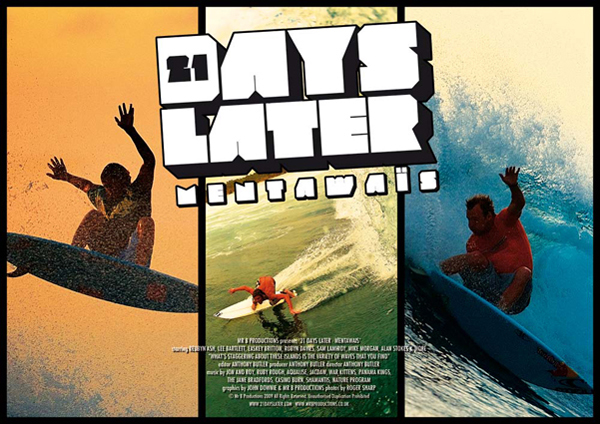
CB: Please tell us about your latest project, how long has it been in the pipeline and what was your vision for it?
Mr B: I actually shot this film in 2006. It was all shot in the Mentawai Islands in Indonesia where I went on a boat trip with seven great British and Irish surfers and photographer Roger Sharp. A short DVD was edited up of the trip and given away with Slide Magazine, which Tim Nunn edited. Last year I started going back through and logging all the footage from the trip and realised there was so much footage that didn’t get used. Tim had no budget and literally no time to edit the film, and he did a fantastic job, especially considering the time constraints, but I just felt like I wanted to make a film about the trip in a different format where you learned a bit more about the surfers and the waves.
When I shot the trip, I didn’t really have a vision for the film, as I was just about to release my first film and was just onboard to film the surfing and get to know everyone. When I started to go through the footage again last year, I thought I’d like to make a film about the Mentawais where you learned more about the actual waves themselves, rather than just a montage of highlights to music. I couldn’t go back and shoot interviews there, so I decided a retrospective voice over would work well.
CB: How would you say this latest work builds upon your previous films and is it in any way a departure or change of tack for you?
Mr B: It’s definitely a change of tack. With this film I wanted to convey the different moods of each break, and also wanted to give a bit more insight to the surfers thoughts about the waves and a few different aspects of surfing. I think overall it’s quite a feel good film too. It’s also got two female surfers on (I haven’t had any female surfers on my previous films).
 CB: How did this film come together and who are the principle parties involved?
CB: How did this film come together and who are the principle parties involved?
Mr B: I got together a rough first edit of how I wanted the film to pan out and then spoke to and showed three of the seven surfers who were on the trip to see if they’d be interested in recording some voice over to give some insight to about the waves, the trip and different aspects of surfing. So I arranged for myself, Lee Bartlett, Sam Lamiroy and Alan Stokes to record the voice over, as well as a full commentary over the film, which will be on the bonus features. The other surfers on the trip were Reubyn Ash, Easkey Britton, Robyn Davies and Mike Morgan. Other than that I did everything on the film – shot, edited, produced, directed, titles, map effects, made the tea.
I would like to say thanks to Roger Sharp who contributed some fantastic photos from the trip for me to use in the cover and poster, and to John Downie for doing an exceptional job on the graphics.
CB: You have been entering Board Shorts with experimental edits of your features, working in conjunction with other artists. How has the experience of working with other artists been and how has it inspired your current work?
Mr B: It was great giving someone else the freedom to create part of the film (the soundtrack) and for it to dictate how I edit the film. It completely alters how you approach filmmaking on your own and it’s more spontaneous and fulfilling because you have to adapt to what the other artist is contributing to the film. I’d definitely like to be part of more collaborations.
 CB: What are your ambitions for your work and for you as a surf filmmaker – where would you like to get to, what would you like to achieve with/through your work.
CB: What are your ambitions for your work and for you as a surf filmmaker – where would you like to get to, what would you like to achieve with/through your work.
Mr B: My ambitions are to first get a budget to make a film; unfortunately it’s got to a point where it’s just not viable to simply sell your films. I’d really like to get to a position where I could shoot and direct a film with a budget that I work on with other people (cameramen, editors, producers etc) to create a really high quality, interesting production. My favourite thing is to shoot in the water, and I’d love to be able to film more water footage for other people’s productions – particularly with the surfers that I have a good connections with.
CB: Do you have a vision of a film that you would like to make given unlimited budget/time/crew etc?
Mr B: I have got a film in mind, which a couple of us are planning and trying to raise a budget for, but I can’t disclose details. It will be a documentary and will have a much broader appeal to the general public. If it comes off it will be pretty exciting but it’s a long way off yet. I’d love to get it broadcast.
I’d love to have a budget to go and spend some more time with Al and Cotty and do some more exploring with them too.
There are a lot of films I’d like to make thinking about it, I just need the budget!
CB: Tell us a bit about the UK surf film scene, what do you think of it and how do you think it stands up alongside other countries’ offerings?
Mr B: The UK surf film scene is massively under-budgeted. Overall it’s a group of independent filmmakers doing what they can, when they can. British surf companies don’t really see surf videos as a marketing option (unless it’s cheesy little web casts or something) compared to other countries, but you can’t blame them because maybe the marketing reach isn’t there with a British surf film! Mikey Smith has recently managed to tap into a bit of budget with ‘Relentless Revolution’ and ‘Powers Of Three’ and it was great to see him do a fantastic job with it, both films turned out great.
Obviously this puts the British surf film scene a bit behind other major surf countries like Australia and the US in the finished production level because they have so much more money to throw at their films, but it also gives the British filmmakers a bit more freedom to make what they want, and Mikey and Lee Evans have shown that the production quality and level can still be outstanding.
British and Irish surf films also have their own unique feel about them which comes from the landscape, light, water colour and temperature, and the individuals that have to put in that extra effort to surf here.
Find out more about ’21 Days Later’ here.
